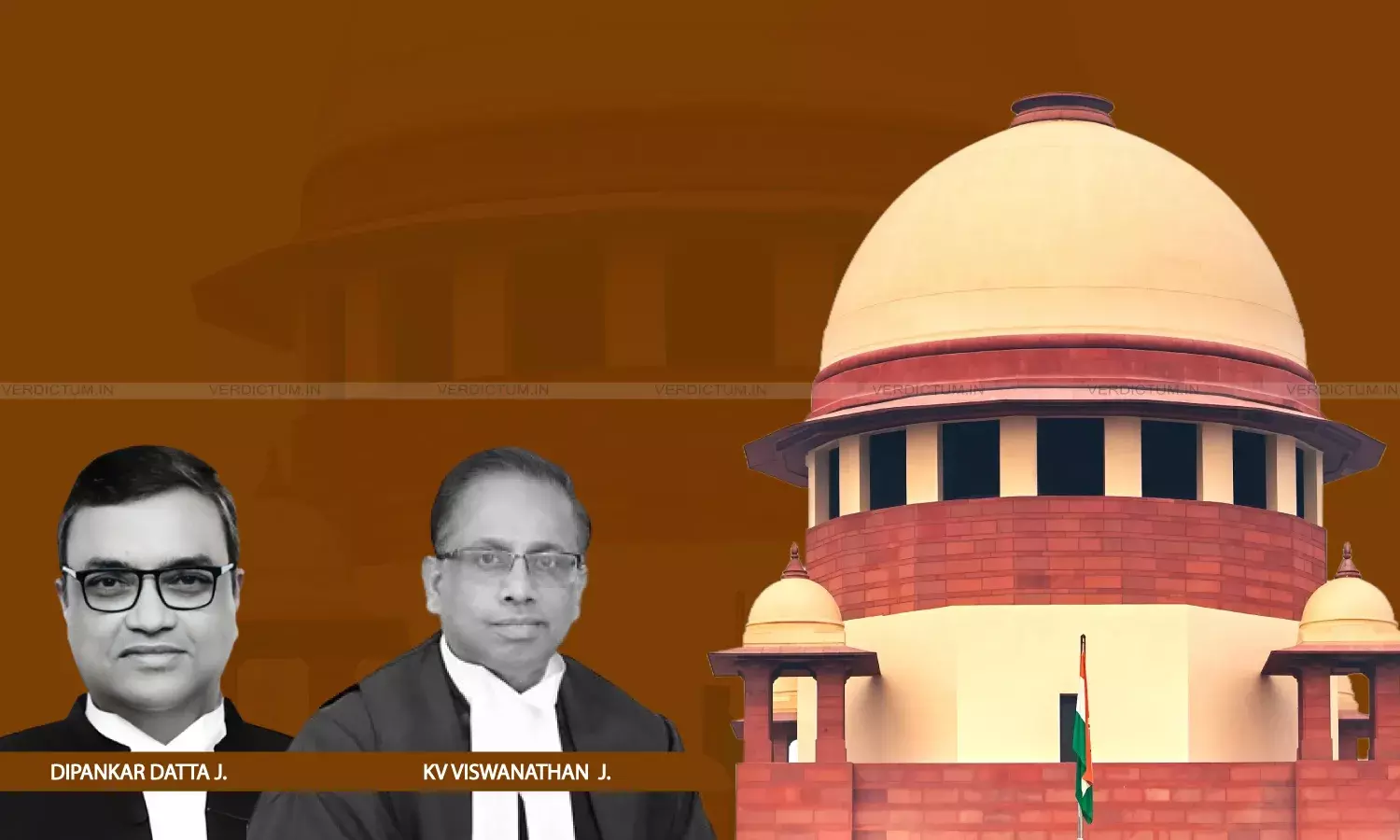Second SLP Not Maintainable If No Such Liberty Was Granted While Permitting Withdrawal Of First SLP: Supreme Court
The Bench clarified that once a litigant withdraws a special leave petition (SLP) without seeking liberty to re-approach, a fresh SLP against the same order is not maintainable.

Justice Dipankar Datta, Justice K. V. Viswanathan, Supreme Court
The Supreme Court has clarified that permitting a second SLP after the unconditional withdrawal of the first would amount to sitting in appeal over previous orders of the Court which have attained finality, therefore defeating the principle that litigation must come to an end.
The Apex Court was hearing civil appeals filed under the SARFAESI Act, challenging orders of the Kerala High Court. The appellant had previously filed an SLP against the same High Court order, but had withdrawn it without obtaining liberty to file afresh.
A Bench comprising Justice Dipankar Datta and Justice K.V. Viswanathan observed that “…entertaining a special leave petition in a case of the present nature would be contrary to public policy and can even tantamount to sitting in appeal over the previous order of this Court which has attained finality. The maxim interest reipublicae ut sit finis litium (it is for the public good that there be an end to litigation) would apply in all fours when it is found that proceedings challenging an order were not carried forward by withdrawing the special leave petition and the litigant has returned to the same court after some time mounting a challenge to the self-same order which was earlier under challenge and such challenge had not been pursued. This is a course of action which cannot be justified either in principle or precept.”
Advocate M.K.S. Menon appeared on behalf of the appellant, while Advocate Aljo K. Joseph appeared for the respondent.
Background
The appellant had availed financial assistance from the respondent bank by creating a mortgage over his property, but defaulted on repayment. The Bank classified his account as a non-performing asset and initiated proceedings under the SARFAESI Act. Challenging the recovery measures, the appellant approached the Kerala High Court, which directed him to clear the dues.
Instead of complying, the appellant approached the Supreme Court by filing an SLP. However, he later sought permission to withdraw the petition, which was allowed. Subsequently, he moved a review petition before the High Court, which was dismissed. He then again filed fresh SLPs before the Supreme Court, challenging both the original order and the review dismissal.
Court’s Observations
The Supreme Court, while referring to its earlier ruling in Upadhyay & Co. v. State of U.P. (1999), affirmed that withdrawing an SLP without liberty to file afresh bars a subsequent SLP against the same order. The Bench noted that “a second special leave petition would not be maintainable at the instance of a party, who elects not to proceed with the challenge laid by him in an earlier special leave petition and withdraws such petition without obtaining leave to file a fresh special leave petition; if such party applies for a review before the court from whose order the special leave petition was initially carried and the review fails, then he can neither challenge the order rejecting the review nor the order of which review was sought.”
The Supreme Court further explained that when a review petition is rejected, the original decree or order continues to remain unaffected, since no change or modification occurs as a result of such rejection. The Court observed that “whenever a party aggrieved by a decree or order seeks a review thereof based on parameters indicated in Section 114 read with Order XLVII, CPC and the application ultimately fails, the decree or order under review does not suffer any change. It remains intact. In such an eventuality, there is no merger of the decree or order under review in the order of rejection of the review because such rejection does not bring about any alteration or modification of the decree or order; rather, it results in an affirmance of the decree or order. Since there is no question of any merger, the party aggrieved by the rejection of the review petition has to challenge the decree or order, as the case may be, and not the order of rejection of the review petition.”
Conclusion
Holding that the principle of finality of litigation must prevail, the Supreme Court dismissed the appeals as not maintainable.
The appellant was, however, left at liberty to pursue any remedy available before the appropriate forum in law.
Cause Title: Satheesh VK Vs The Federal Bank (Neutral Citation: 2025 INSC 1140)
Appearances
Appellant: Advocate M.K.S. Menon
Respondent: Advocate Aljo K. Joseph


